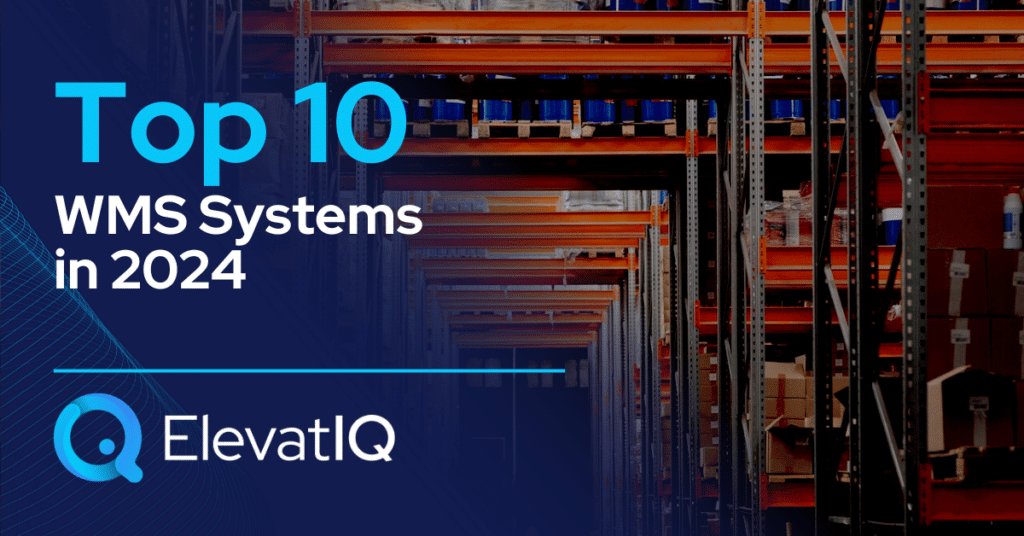If you are a warehouse-centric business such as distribution or manufacturing, automating your warehouses using barcode scanners is a must-have, especially, for growing companies. But why? To expedite your fulfillment processes and gain efficiencies. So do I need software to do that? Yes, a warehouse management system (WMS). It is a system or module that allows you to achieve your warehouses’ automation goals. Are they available for QuickBooks users as well? Yes, read on to learn your options.

Why Do you need a WMS add-on for QuickBooks?
While QuickBooks is a great accounting system that provides a quick jump start to your accounting and finance processes, it’s limiting. With it, you might need to manage your operations manually (or with spreadsheets). Its design is not suitable for automating other business processes, such as managing your warehouse or fulfilling your orders.
As you grow, your operational processes could become overwhelming. The amount of churn required to fulfill your orders (or revenue collection being late) is due to the amount of bookkeeping or administration needed. As well as due to disconnected processes. These issues could lead to the need to increase your warehouse staff’s headcounts to fulfill your orders within time.
Even if you managed to increase your warehouse’s labor capacity to circumvent this challenge, some related issues might persist with customer orders. Issues such as customers not receiving the right items or too many customers returning their orders. This could lead to further problems such as an increased workload for your customer service department.
There could be several drivers why a company may look for a WMS add-on, such as 1) the perceived costs. 2) unqualified advice from unreliable sources. 3) perception of disruption to existing working processes. Or 4) perception of bandwidth required to change a component vs. big bang approach.

Why is QuickBooks WMS add-on not the right solution?
Generally, two factors drive the need for a WMS system and why the above problems exist with businesses that use QuickBooks. 1) the need for automation of warehouse processes. And 2) the lack of necessary controls throughout business processes, which might be impacted by warehouse processes.
While challenging, even if you succeed in achieving your automation goals through a WMS add-on, these heterogeneous technologies may fail. But fail in what sense? To provide the necessary control that you would need in your processes.
There are two reasons why lack of control would be an issue with a WMS add-on. 1) QuickBooks is not designed to give control across your operational processes. And 2) unless an add-on is built using the same technology or supplied by the publisher (in this case, Intuit) that developed QuickBooks, the add-on would have limited control over someone else’s software.

QuickBooks WMS add-on alternatives and their benefits
The right way to solve this problem would be to find an integrated option developed from the ground up for a company of your size. These integrated options, such as Acumatica or Infor CloudSuite Industrial (Syteline), would natively support the accounting and warehouse automation processes out of the box using the same code base. Their operational procedures contain built-in controls to ensure the consistency of items throughout the order-to-cash cycle. And avoid scenarios such as the mixing of orders or items.
If the costs are your primary driver, an add-on might appear to be a lucrative option in the short term. Over time, though, you will spend more due to maintenance costs as you will have to deal with multiple vendors and their terms and contracts. The price for finance modules with software such as Acumatica could be lower than QuickBooks due to their bundled offering. Plus, you have the option to grow with it by adding as many modules as you like, in the same technology built by the publisher as opposed to a third party.
On the other hand, in the case of time and effort. Irrespective of whether you purchase a QuickBooks’ WMS add-on or the integrated option, your accounting procedures are likely to be impacted. Why? Because you are likely to have several ad-hoc processes unique to your business due to the lack of enforcement provided by QuickBooks. The WMS add-on would require you to standardize them as most companies, including these third parties, design their code using standard practices commonly used in the industry. For this reason, whether you consider an add-on or the integrated option, your perception of saving time or money would not be a reasonable reason to buy a WMS add-on.

Wrapping up!
QuickBooks’ design doesn’t support the operational processes of a growing company. It’s a small accounting system designed to jumpstart your accounting processes. Rather than creating patchy architecture by adding add-ons for your critical processes and spending more in the long term due to its consequences, you should find appropriate software for your stage once you outgrow QuickBooks. Adding an add-on will only make your problems worse!







